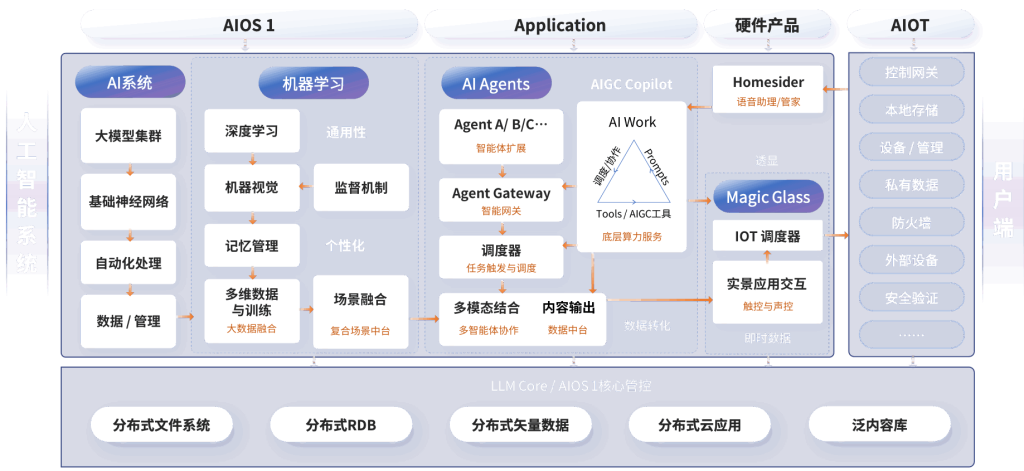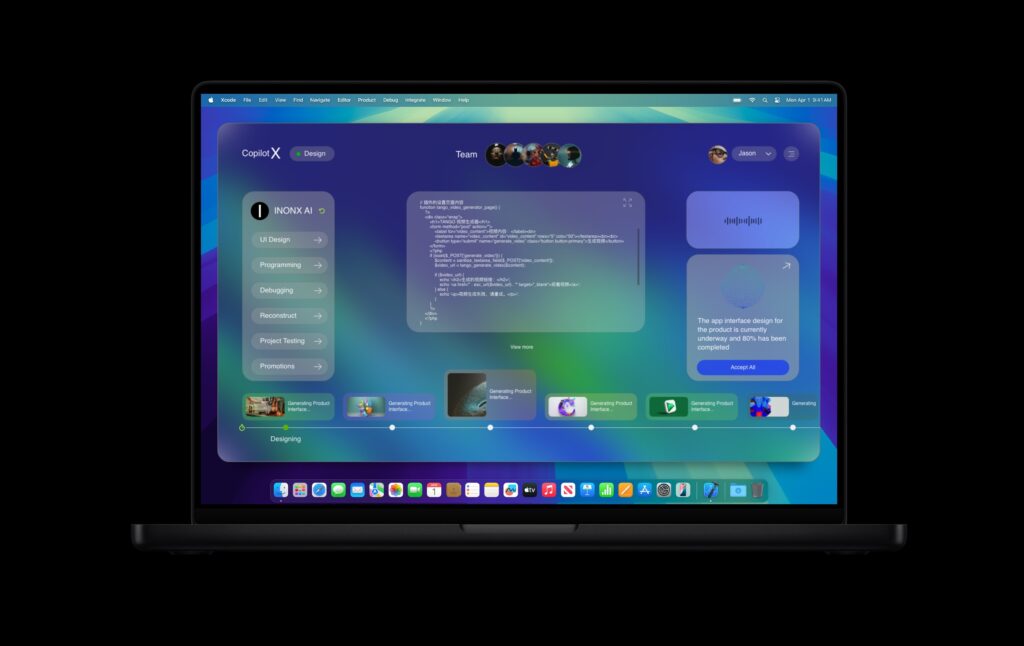Artificial Intelligence (AI) continues to advance at an incredible pace, shaping industries and transforming everyday life. As we navigate through 2024, notable advancements such as the release of large language models like Google Gemini 1.5 Pro, new tools and APIs, specialized technologies, and innovative products have emerged that promise to revolutionize sectors from healthcare to business automation and beyond. In this article, we will explore these developments and their implications across various industries.
.
**Google Gemini 1.5 Pro: The Future of Multimodal AI**
One of the standout announcements in the AI landscape this year is the release of Google Gemini 1.5 Pro, a powerful new large language model that boasts significant enhancements in multimodal capabilities. Gemini 1.5 Pro has been designed to handle not only text but also images and audio, enabling a richer and more interactive user experience. This model stands out due to its extended context understanding, which can manage up to 64,000 tokens of text, a substantial improvement over its predecessors.
This expanded capacity allows users to engage with the model for more intricate and nuanced conversations and analyses. For instance, in educational settings, students can query complex subjects and receive informative responses that consider a wide array of interconnected concepts. Additionally, its multimodal features make it incredibly useful for developers aiming to create applications that can interpret and respond to visual and auditory inputs. According to an official Google blog post, Gemini 1.5 Pro is expected to provide significant contributions to fields such as healthcare diagnostics and real-time language translation, optimizing processes that previously required extensive human oversight (Google AI Blog, 2024).
.
**Emerging AI Tools and APIs: Catalyzing Industry Transformation**
In addition to groundbreaking large language models, various tools and APIs integrating advanced AI technologies are emerging to streamline operations across diverse industries. Notably, platforms like OpenAI’s ChatGPT API and Microsoft’s Azure OpenAI Service have been updated to include refined models that enable businesses to automate customer support, content generation, and even complex data analysis tasks.
The new functionalities extend to enhanced accuracy and responsiveness, allowing for seamless integration into existing workflows. For instance, businesses in the financial sector have successfully incorporated AI-driven chatbots to manage customer queries, improving response times and customer satisfaction metrics significantly. Furthermore, industries like retail have leveraged AI to provide personalized shopping experiences, utilizing customer data to tailor product recommendations in real time (Forrester Research, 2024).
.
**Debiased Large Language Models: A Step Towards Ethical AI**
One of the key discussions surrounding AI development has been the need for reliable and debiased large language models. As organizations increasingly recognize the impact of bias on AI systems, new methodologies are surfacing to address this issue. Several companies are focusing on creating more ethical models by refining their training data and implementing debiasing algorithms that mitigate the effects of biased datasets.
For instance, companies like Anthropic and EleutherAI have made strides toward developing language models designed explicitly with fairness in mind. These models aim to reduce discriminatory language and promote inclusivity, which is paramount for applications in sensitive fields such as hiring practices or legal advisory services. In a recent conference, researchers from Stanford University revealed that implementing debiasing techniques could enhance operational efficiency and trust in AI systems, thereby fostering wider acceptance of AI in society (Stanford AI Conference, 2024).
.
**Revolutionary AI Products: Tailored Solutions for Diverse Industries**
The landscape of innovative AI products has shifted significantly in 2024, with offerings tailored for enterprise solutions, cybersecurity, and creative applications taking center stage. Companies like Salesforce have introduced enhanced AI content management systems that help businesses optimize their content strategies. These systems leverage AI to analyze and curate content that resonates with target audiences, significantly improving engagement rates.
Moreover, the cybersecurity sector is experiencing an influx of AI-driven products that offer real-time threat detection and automated incident response solutions. For example, Darktrace has expanded its platform, allowing AI to learn normal patterns of network behavior, enabling it to detect anomalies with unprecedented accuracy. This capability is vital in today’s landscape of increasing cyber threats, where organizations require proactive measures to safeguard their data (Cybersecurity Ventures, 2024).
The creative industry is not left behind, as emerging tools powered by AI offer content creators innovative solutions. Tools introduced by companies like Adobe now include AI-powered design suggestions and automated video editing features. This functionality allows artists to express their creativity without being bogged down by tedious tasks, thus fostering more vibrant creative outputs. As reported by AdAge, the use of Emotional AI Systems is particularly noteworthy, enabling content creators to tailor their outputs based on the emotional responses of their audiences (AdAge, 2024).
.
**AI in Connected Vehicles: Navigating the Roads of Tomorrow**
As we see a greater convergence of AI technology and the automotive industry, AI in connected vehicles has gained significant traction. Major automotive manufacturers are integrating AI capabilities to enhance safety and driver assistance features. Platforms now incorporate advanced deep learning algorithms that analyze data from various sensors to improve navigation and ensure drivers are alerted to potential hazards in real time.
For instance, Tesla’s latest software update includes sophisticated AI algorithms that not only enhance Autopilot features but also learn driver preferences over time, significantly improving user experience. Similarly, companies like Ford are deploying AI systems that provide predictive maintenance alerts, helping vehicle owners to manage their cars efficiently (Bloomberg Tech, 2024).
Additionally, AI in connected vehicles contributes to sustainability initiatives by optimizing fuel efficiency and supporting the transition to electric vehicles through improved battery-management systems. As the industry progresses towards autonomous vehicles, these advancements underpin the massive potential of AI to transform our roads and urban landscapes.
.
**The Future of AI: A Transformative Journey Ahead**
As we explore the advancements of AI in 2024, it becomes increasingly apparent that this technology is redefining industries and societal norms. The introduction of multimodal AI models, the development of ethical and debiased systems, comprehensive AI tools for automation, and innovative products spanning multiple sectors demonstrate the vast potential of AI.
Moreover, as industries such as healthcare, business, and education continue to integrate AI into their core processes, we can expect a paradigm shift in how services are delivered and experiences are crafted. While challenges remain in ensuring ethical implementation and addressing biases, the ongoing innovations in AI present a promising path toward more efficient, responsive, and responsible technological solutions.
In conclusion, 2024 marks an exciting chapter for AI, and as we harness these advancements, the focus must remain on utilizing AI to benefit humanity as a whole. The collaborative effort of researchers, developers, and industries will be vital in shaping a future where AI serves as a powerful ally in addressing global challenges.
.
**References:**
– Google AI Blog. (2024). Google Gemini 1.5 Pro: A New Era in Multimodal AI.
– Forrester Research. (2024). The Rise of AI Tools and APIs in Business Automation.
– Stanford AI Conference. (2024). Addressing Bias in AI: Advances in Debiased Large Language Models.
– Cybersecurity Ventures. (2024). AI Innovations in Cybersecurity: Protecting Data in a Digital World.
– AdAge. (2024). Emotional AI Systems: Transforming Content Creation for Modern Audiences.
– Bloomberg Tech. (2024). Accelerating the Future: AI in Connected Vehicles and the Auto Industry.

























